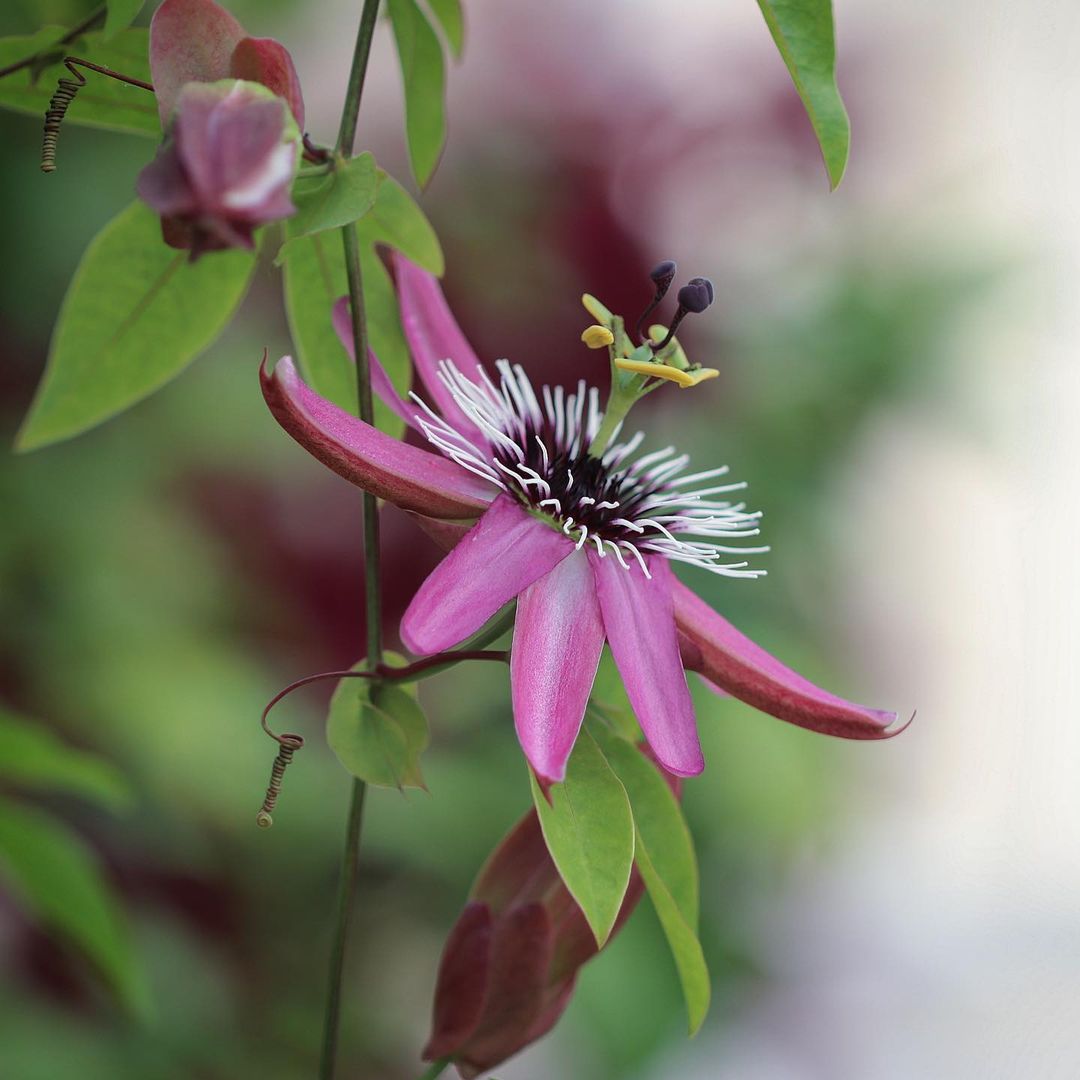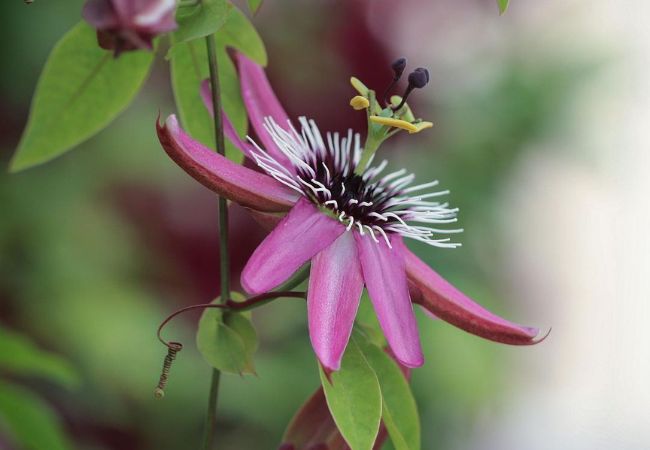Discover the exotic Passion Flower: learn how to grow, care for, and enjoy this stunning vine in your garden. Perfect for adding tropical flair to any outdoor space.
Have you ever seen a Passion flower? Also known as Passiflora or passion vine, this plant is famous for its intricate, eye-catching blooms. In this article, we’ll explore what it is, how to grow it and why you might want to add this tropical beauty to your garden.
Here’s an information chart for Passion Flower (Passiflora):
CategoryInformationBotanical NamePassiflora spp.Common NamePassion FlowerPlant TypeVineHardiness ZoneZones 6-11, depending on speciesSun ExposureFull sun to part shadeSoil TypeWell-draining, fertileWateringModerateGrowth HabitClimbing vineHeight/SpreadVaries by species; typically 10-20 feet tall, spreads 3-10 feetSpecial FeaturesIntricate, exotic flowers in various colors, blooms in summer to fall, attracts pollinators, edible fruit on some species
What is a Passion Flower?

Passion flower (Passiflora) is a genus of plants that includes over 500 species. They’re known for their unique, complex flowers and often edible fruits.
- Colors: Flowers come in shades of purple, blue, red, white and pink.
- Size: Vines can grow 15 to 50 feet long, depending on the species.
- Leaves: The leaves are usually dark green and lobed.
How to Grow Passion Flowers
Growing Passion flowers can be rewarding. Here’s what you need to know:
- **Sunlight: **They prefer full sun to partial shade.
- **Soil: **Well-draining, fertile soil is best.
- Water: Keep soil consistently moist but not waterlogged.
- Temperature: Most species are hardy in USDA zones 7-10, but some can tolerate colder climates.
Planting Tips:
- Plant in spring after the last frost.
- Provide a trellis or support structure for the vines to climb.
- Space plants 3-5 feet apart.
Uses in the Garden
Passion flowers have various uses in the garden:
- Vertical gardens: Their climbing nature makes them perfect for walls and fences.
- Butterfly gardens: They attract butterflies and other pollinators.
- Tropical gardens: Their exotic flowers add a tropical feel to any space.
- **Container plants: **Some species can be grown in large pots.
Caring for Your Passion Flowers
To keep your Passion flowers healthy:
- Water deeply once a week, more often in hot weather.
- Prune in late winter or early spring to control growth and encourage blooming.
- Fertilize monthly during the growing season with a balanced fertilizer.
- Watch for pests like spider mites and scale insects.
Benefits of Growing Passion Flowers
There are many reasons to grow Passion flowers:
- They have stunning, unique flowers that bloom for a long time.
- Some species produce edible fruits, known as passion fruit.
- They attract pollinators like butterflies and bees.
- They can quickly cover unsightly walls or fences.
Interesting Facts
- The name “Passion flower” comes from Spanish Christian missionaries who saw symbols of the Crucifixion in the flower’s structure.
- Passion flower extract is sometimes used in herbal medicine for its potential calming effects.
- Some Passion flower species are the sole food source for certain butterfly species.
- The Maypop (Passiflora incarnata) is native to the southeastern United States.
Passion flowers (Passiflora) are a fascinating and beautiful addition to any garden. With their exotic blooms, climbing habit, and potential for edible fruits, they offer a lot to both new and experienced gardeners. Why not try growing some Passion flowers in your garden this year?
Remember, gardening is about enjoying the process and learning as you go. Don’t worry if everything isn’t perfect – just have fun watching your Passion flowers grow and bloom!
For more gardening tips and plant care guides, visit usagardenhub.com.

